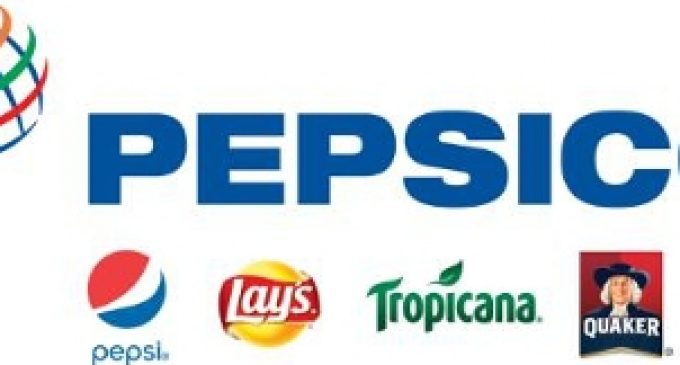PepsiCo Joins Calls for Action on Climate Change

PepsiCo has strengthened its commitment to action on climate change by announcing new goals for phasing out equipment with hydroflourocarbons (HFCs), signing both the Ceres BICEP Climate Declaration and the Prince of Wales’ Corporate Leaders Group Trillion Tonne Communique, and reporting progress on its energy efficiency initiatives. These commitments are part of PepsiCo’s overall strategy to address climate change by working across its business.
“Combating climate change is absolutely critical to the future of our company, customers, consumers—and our world,” says Indra Nooyi, Chairman & CEO of PepsiCo. “I believe all of us need to take action now. PepsiCo has already taken actions in our operations and throughout our supply chain to ‘future-proof’ our company—all of which deliver real cost savings, mitigate risk, protect our license to operate, and create resilience in our supply chain.”
PepsiCo announced a goal that by 2020 all of its future point-of-sale equipment (coolers, vending machines and fountain dispensers) purchased in the United States, will be HFC-free. HFCs are a popular chemical coolant and are considered a potent greenhouse gas (GHG) that contributes to climate change. This goal is part of a recently launched partnership with the Obama Administration and other U.S. companies, which aims to reduce global consumption of HFCs by the equivalent of 700 million metric tons of carbon dioxide—or 1.5 percent of the world’s 2010 GHG emissions—through 2025.
To meet its goal, PepsiCo will begin purchasing new HFC-free equipment starting in 2015. PepsiCo has already begun to phase out HFCs in its equipment outside of the United States by buying more than 290,000 HFC-free pieces of equipment since 2009 and by using a 100 percent HFC-free insulation/foam for all new equipment. It has also minimized the impact of existing equipment by innovating its coolers and vending machines to improve their energy efficiency by 60 percent compared with a 2004 baseline. These combined efforts have reduced total GHG emissions by 18 percent since 2007.
Along with this goal, PepsiCo has become the largest US-based food and beverage industry signatory of the Climate Declaration of the Ceres coalition, Business for Innovative Climate and Energy Policy (BICEP). PepsiCo also signed the Prince of Wales’ Corporate Leaders Group Trillion Tonne Communique.
PepsiCo reported a nearly 14 percent improvement in global energy efficiency in 2013 when compared with its 2006 baseline. This change represents progress towards PepsiCo’s goal of reducing energy intensity by 20 percent per unit of production by 2015 and is driven by resource conservation initiatives and conversion to renewable forms of energy. In 2013 alone, energy efficiency efforts delivered estimated cost savings of $75 million.
To achieve its goal of sustainable business growth—what the company calls Performance with Purpose – PepsiCo has set specific goals that guide its strategy and operations. Progress on these goals is highlighted in PepsiCo’s new 2013 Corporate Sustainability Report and Global Reporting Initiative (GRI) report and includes:
* Saving 14 billion liters of water through operational efficiency programs, translating to approximately $15 million in savings; and avoiding $3 million in landfill costs through PepsiCo’s Resource Conservation initiatives.
* Increasing the total amount of material recycled to more than 18 million pounds and 324 million containers since 2010.
* Expanding sourcing of certified sustainable agriculture raw materials, including 100 percent of potato and seed growers in Chile certified to the Rainforest Alliance standards, and achieving one of the first Fairtrade certifications in its category for Naked Coconut Water in the US.
PepsiCo products are enjoyed by consumers in more than 200 countries and territories around the world. PepsiCo generated more than $66 billion in net revenue in 2013, driven by a complementary food and beverage portfolio that includes Frito-Lay, Pepsi-Cola, Quaker and Tropicana. PepsiCo’s product portfolio includes a wide range of foods and beverages, including 22 brands that generate more than $1 billion each in estimated annual retail sales.


























